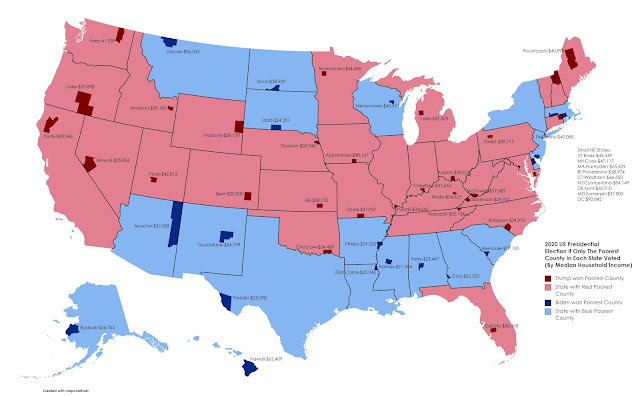Perhaps like me, you're old enough to remember the days when Republicans fought to give corporations free speech rights by granting them the ability to spend unlimited amounts of money on political causes. Or how about that time they celebrated the Supreme Court's decision to grant private corporations "personhood" by allowing them to claim religious freedom. As recently as 2012, Republican presidential candidate Mitt Romney insisted that "corporations are people!"
Of course, all of that was predicated on the assumption that corporations would fall in line when it came to supporting Republicans. As we saw with Florida Governor DeSantis, it became time to punish corporations when they challenged his "don't say gay" bill. All of the sudden the Disney corporation doesn't have free speech rights anymore.
Over the last few years, a growing chorus on the right is beginning to claim that corporations are generally being led by "leftist elites" who are spreading a "woke agenda." Where is that coming from?
Two years ago, Klaus Schwab, founder and executive chair of the World Economic Forum, raised an important question, “What kind of capitalism do we want?” He posited that there were three potential alternatives.
1. Shareholder capitalism—is focused on maximizing short-term profits;3. Stakeholder capitalism—is a system in which corporations serve the interests of all their stakeholders, including customers, suppliers, employees, shareholders, and local communities.
2. Social aspect: Data is reported on employee safety and health, working conditions, diversity, equity, and inclusion, and conflicts/humanitarian crises.
3. Governance aspect: Data is reported on corporate governance such as preventing bribery, corruption, diversity of Board of Directors, executive compensation, cybersecurity/privacy practices, and management structure.
[O]ver the past five years US sustainability funds with a capitalization of $10 billion or more that focused on growth averaged an annual return of 14% while conventional non-ESG funds grew 11% a year.
If all of this is news to you, then you probably haven't been consuming right wing news. They have launched a massive campaign against ESG. For example, Fox News regularly runs anti-ESG segments. The right wing Heritage Foundation has published numerous anti-ESG articles, but its also gone so far as to start a whole campaign titled "ESG Hurts." The message is always: how dare corporations consider any factor other than short-term gains for shareholders! Of course, anyone who pays attention to environmental, social, and governance issues is merely buying in to the "woke liberal agenda."
But it isn't just right wing media. Trump's Labor Department issued a ruling that put roadblocks against a corporation's ability to consider ESG factors in employee retirement funds - a rule that is now being overturned by the Biden administration. Both Governor Abbott of Texas and DeSantis of Florida have moved to ban or restrict pension fund investment in companies that take ESG factors into consideration.
Of course, the hypocrisy of all this is demonstrated by the fact that, when corporate America (Hobby Lobby) wanted to restrict employee's access to birth control, Republicans were all for it. But if corporations take the risks associated with climate change into account, they're "forcing woke policies down American's throat without going to the ballot box."
This is all part of the movement on the right towards "National Conservatism." Rather than an open embrace of free markets, they want to use government to punish anyone who doesn't toe their line in the culture wars. If that means going to war with corporate America...so be it.















